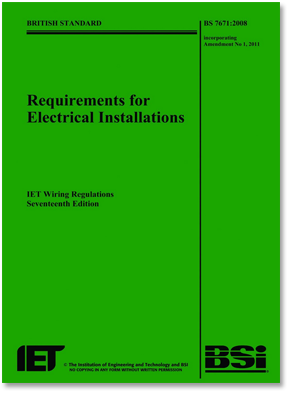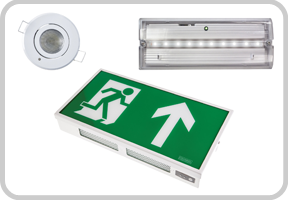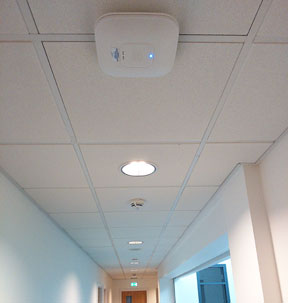Inspection and Testing
Chancery Contracts offer a range of Inspection and Testing services to support legislation and practical day-to-day requirements of ensuring occupant safety.
In all our services we understand the need for practicality and cost effectiveness in delivering a safe environment.
EICR - Electrical Installation Condition Report
 An EICR or Electrical Installation Condition Report is something Chancery Contracts conducts in every sphere of our business: domestic, commercial or industrial. It is a report based on a full inspection of the electrical installation (as the name suggests).
An EICR or Electrical Installation Condition Report is something Chancery Contracts conducts in every sphere of our business: domestic, commercial or industrial. It is a report based on a full inspection of the electrical installation (as the name suggests).
The basis of the inspection is British Standard BS7671 (Requirements for Electrical Installations) which requires all types of electrical installations to be installed in accordance with BS 7671 this provides a safer place of home and work .
It is these requirements that must be met for a satisfactory EICR report to be issued. Non-compliances will have numbers 1-3 against them which will have to be rectified before a satisfactory ECIR will be issued.
All sales of property or change of tenancy normally require an up-to-date ECIR. We have attached a leaflet from the electrical safety council advising you on what work is carried out on an ECIR report
A typical trigger point is a change of ownership (eg a house sale), but it is also worth undertaking if there has been any substantial building work on the premises or if the premises is older and has not had any electrical checks for some time (ie 10 years or more).
Although the results of these reports can sometimes be quite shocking (if you will excuse the pun), the information contained in them is very important for premises owners to know about and, if necessary, take action on.
Download Best Practice Briefing
Emergency Lighting
 The problem with any emergency equipment is that you only need it in an emergency. In other words, it can be quite easy to forget about such things until it is too late. Emergency lighting is a classic example of something that can often prove to be the difference between life and death in an emergency situation such as a fire. It is vital therefore to ensure the emergency lighting is always available and so regular testing is required.
The problem with any emergency equipment is that you only need it in an emergency. In other words, it can be quite easy to forget about such things until it is too late. Emergency lighting is a classic example of something that can often prove to be the difference between life and death in an emergency situation such as a fire. It is vital therefore to ensure the emergency lighting is always available and so regular testing is required.
Chancery contracts will design and install emergency lighting to BS5266 in all types of property. When complete you will be issued with an emergency lighting completion certificate and an emergency lighting log book to record the regular tests that are required. You can carry out these tests yourself, or we will offer to undertake the service for you.
It is is recommended that a walk-round test is carried out each week and a 10 minute test once a month with a 1 hour test every six months and a 3 hour test every twelve months.
All failures on the fittings should be repaired straight away.
Fire Alarm Test
 As with emergency lighting, above, fire alarms are emergency equipment that need to work in the emergency situation, but are not used habitually. it is important therefore to test the full alarm system regularly to ensure its availability should the fire emergency occur.
As with emergency lighting, above, fire alarms are emergency equipment that need to work in the emergency situation, but are not used habitually. it is important therefore to test the full alarm system regularly to ensure its availability should the fire emergency occur.
For public buildings, or commercial or industrial premises, ad-hoc checking of fire alarms is not recommended.
British Standard BS5839 Part 1 recommends weekly testing of manual call points and the system overall - including all alarms and any firewall units that may be part of it. Monthly checks should be made on any automatic system.
With respect to the more detailed inspection that Chancery Contracts normally undertakes, these should occur at least once every 6 months. These checks can incorporate not just the physical checks of the equipment, but also the records made of weekly checks. It is therefore both a technical evaluation and an audit.
We also include in this work an evaluation of false alarms and can make recommendations on settings, and sensor location to reduce the frequency of false alarms.
PAT Testing
PAT or Portable Appliance Testing is a way of ensuring that electrical appliances are maintained in way that means that they can continue to be used safely. Covered by the Electricity at Work Act 1989, the main users of PAT testing are industrial and commercial.
The act itself uses the term 'reasonably practicable' with respect to maintenance and so these requirements to have a practical foundation. In fact the Health and Safety Executive who alongside local authorities, police the legislation, have in recent publications put more emphasis on the practical side and discouraged over zealous testing.
PAT Testing is nonetheless an important component in the overall health and safety of employees and building occupants. Electrical safety is important to not just reduce the risk of electrical shock and potential death, it is also important to reduce the risk of fire.
Chancery Contracts offer both comprehensive and partial testing regimes that are designed to be at once compliant with legislative requirements and practically focused to minimse disruption and the need for unnecessary maintenance.
Chancery Contracts works with both commercial and domestic clients. If you would like to know more about our electrical inspection and testing services please get in touch.

